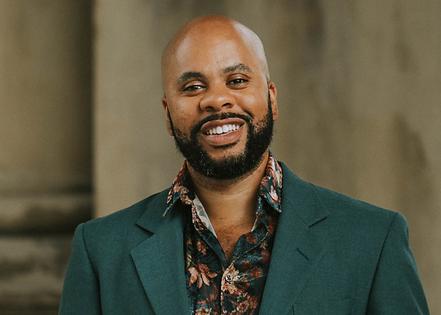Asking Eric: Husband won’t let kids have friends over inside the house
Dear Eric: My husband has told our kids they cannot have any friends inside of our home. They can play in the front yard and that is it. I don't know how to tackle this, or what to say when it's our “turn” to host our kids’ friends. I've been hosting the friends to movies, arcades, etc., but never in our home.
My husband is retired and seems to prefer always being home and away from others. I accepted this when we married because he is fine with me going and being around people, if needed.
We didn't have children until we'd been married for several years and now, I'm worried that our kids will suffer from this odd (in my opinion) rule. His family did not have what I consider traditional habits like eating meals together, spending holidays together or things that my kids and family enjoy.
I don't want to alienate my husband by forcing him to help host other kids. I love him and understand he's not very people-y, but I also want my kids to be able to play the host role. I think this is an important social skill (they are 11 years old). Any suggestions?
– Home Alone Kids
Dear Kids: Part of this is about negotiating the shared responsibility of parenting. I worry that you’re taking on more of that responsibility than you should have to and that your husband, perhaps, isn’t supporting you in the shared goal of making sure your children develop socially.
If you both agree that having friends will help your children, feel a sense of belonging, develop cognitively and improve their social skills, and that being able to know your children’s friends will help you both be better parents, then you owe it to each other to talk about how that can happen.
Maybe he feels that he’s already done enough by allowing friends in the yard. It would be helpful to point out that you’re still planning outings. Is this something that he can help with or initiate on his own?
Many parents are introverted and/or don’t want a house full of their kids’ friends. That’s perfectly fine. A child’s development doesn’t absolutely require having friends over inside. But friendship is important and the ways that they maintain those friendships will grow and change as they enter their teen years.
This is a great opportunity for you and your husband to reassess the ways that parenting is changing for you and to realign the ways that you do this as a team. Don’t let other people’s expectations of you and your children’s social calendars dictate this conversation. Instead, be open about what’s important to you – be it having friends over when he’s not home or simply having more meals together. He doesn’t have to be people-y, but the people in his home have needs, too. He can, and should, show up for you.
Dear Eric: This is in response to the person who lost the love of her life unexpectedly and was not aware of his other romantic interests that were ongoing with other women (“Gripped by Grief”). This woman should definitely be seen by her gynecologist for possible exposures to STIs. Having worked in an OB/GYN office for 30 years, it was very common that women exposed to multiple partners sexually would have abnormal Pap smears and other sexually transmitted infections.
– Concerned Reader
Dear Reader: This is good advice. Per the Centers for Disease Control and Prevention, sexually active people with risk factors such as new partners, multiple partners or a partner who has an STI should be tested at least once a year. The letter writer was unknowingly in a relationship with someone with multiple partners, so she’d be wise to seek out testing (free and low-cost options can be found at gettested.cdc.gov) and talk with her healthcare provider as soon as possible.
Dear Eric: I just wanted to add to the conversation about “Gripped with Grief,” who found out their partner had multiple girlfriends after the partner died. They are experiencing complex, disenfranchised grief. They could benefit from reaching out to a grief counselor in their area. As a hospice social worker, I know that no amount of talking to friends or family, OR letting people know about her partner's lifestyle, will take the place of a true grief counselor when one experiences this type of combined grief, betrayal and disenfranchisement of "normal" grief.
– Long Road to Healing
Dear Healing: Absolutely. In addition to the testing suggested by a letter above, the letter writer should take the time to process the feelings that are coming with a professional or support group. Many state and local governments have resource pages for finding help. Additionally, there are searchable databases for groups and counselors on PsychologyToday.com.
(Send questions to R. Eric Thomas at eric@askingeric.com or P.O. Box 22474, Philadelphia, PA 19110. Follow him on Instagram and sign up for his weekly newsletter at rericthomas.com.)
©2024 Tribune Content Agency, LLC.


















Comments